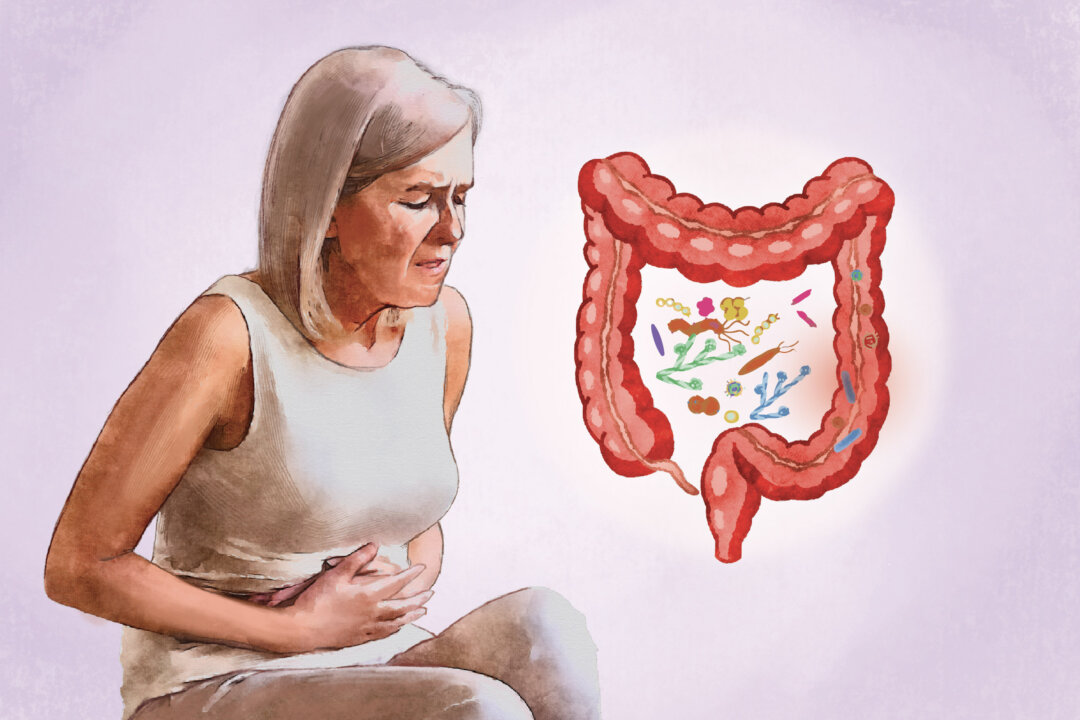Millions of people suffer from dysbiosis, yet it often goes undiagnosed. An unhealthy imbalance in the microbes that live in the body—dysbiosis can affect nearly every aspect of health. Its wide-ranging symptoms and lack of standardized testing make it difficult to identify and easy to overlook.
Microbial disruption associated with dysbiosis triggers chronic inflammation, contributing to a range of chronic health conditions, including gastrointestinal, mental, neurodegenerative, autoimmune, and metabolic diseases. Even one course of antibiotics or a poor-quality diet can disrupt microbial balance. Fortunately, with the right approach, dysbiosis can be identified and corrected.

Targeted nutrition, lifestyle changes, and natural therapies can help rebalance the microbiome and improve overall health. A decrease in microbial diversity A loss of beneficial microbes An overgrowth of harmful or opportunistic microbes Dysbiosis can also occur when microbes end up in places where they do not belong. In people with liver disease such as cirrhosis, oral bacteria may migrate into the gut and disrupt its microbial balance.
Another example is small intestinal bacterial overgrowth, where bacteria normally found in the colon begin to multiply in the small intestine. While these microbes are not harmful in their usual location, their presence in the wrong area can cause symptoms like bloating, abdominal pain, and impaired nutrient absorption. Crohn’s Disease: Symptoms, Causes, Treatments, and Natural Approaches Ulcerative Colitis: Symptoms, Causes, Treatments, and Natural Approaches The relationship between dysbiosis and disease is often bidirectional.
Changes in the microbiome may contribute to disease development, as seen in conditions like Type 1 diabetes and Parkinson’s disease. However, dysbiosis can also emerge in response to changes in the body’s internal environment caused by disease. Viral or bacterial infections, including SARS-CoV-2 Underlying health conditions such as inflammatory bowel disease, obesity, and chronic liver disease Lifestyle habits such as smoking, alcohol consumption, unprotected sex, lack of physical activity, and sleep deprivation Physical or emotional stress—including trauma, surgery, or chronic tension Poor hygiene or excessive sanitization Poor diet—high in sugars, processed foods, animal protein , or unhealthy fats, and low in fiber Food additives such as antimicrobial preservatives, sulphates and sulphites, emulsifiers, and artificial sweeteners Antibiotics and other drugs, including statins, proton pump inhibitors, nonsteroidal anti-inflammatory drugs, and antidepressants Genetics may play a small role in susceptibility.
Cesarean birth—frequently paired with antibiotics—can delay healthy microbial colonization. The benefits of swabbing the infant’s mouth with vaginal fluid appear to last less than a month. Formula feeding lacks breastmilk’s prebiotics and probiotics, reducing microbial diversity.
A poor maternal diet or dysbiosis during pregnancy can increase the baby’s risk. Environmental toxins like pesticides, air pollution, and endocrine disruptors alter gut pH and microbial function. Hormonal changes during puberty, pregnancy, or menopause.
A leaky gut allows bacteria and other substances to enter the bloodstream, fueling inflammation that worsens microbial imbalance. Low production of butyrate—a compound made when gut bacteria break down fiber—weakens gut wall protection and changes oxygen levels in the intestines. When these communities are out of balance, symptoms can emerge in unexpected ways.
The imbalance might impair nutrient absorption, disrupt immune signals, weaken protective linings in the gut or skin, or trigger widespread inflammation. These disruptions can lead to a wide range of symptoms that may appear unrelated, depending on the affected area and the nature of the imbalance. Sometimes, dysbiosis presents without obvious symptoms, silently affecting health and increasing the risk of developing various conditions.
Halitosis or bad breath Gas Bloating Food intolerances or sensitivities Abdominal cramping Diarrhea Mucus in the stool Genitourinary symptoms, such as vaginal itching or discharge Dermatological signs, including skin rashes or redness Oral health issues, such as cavities or bleeding gums Systemic symptoms like persistent fatigue Gut Dysbiosis Oral Dysbiosis Vaginal Dysbiosis Skin Dysbiosis Basic Tests Stool culture: Detects harmful bacteria but often misses the broader microbial picture Breath test: Helps identify bacterial overgrowth, particularly small intestinal bacterial overgrowth Endoscopy/colonoscopy: Offers direct visualization of the gut, but doesn’t assess microbial balance Functional Medicine Tests Comprehensive stool analysis: Assesses bacterial balance, inflammation markers, and digestive function Intestinal permeability tests: Measures “leaky gut” through blood or stool samples Organic acids test: Indicates microbial activity based on metabolites in urine Food sensitivity testing: Identifies foods that may contribute to gut dysfunction While not always the root cause, dysbiosis can intensify symptoms, accelerate progression, or interfere with recovery. Some complications arise locally, while others reflect systemic effects throughout the body. Oral: Gingivitis, periodontitis, dental caries, oral candidiasis Gastrointestinal: Ulcerative colitis, Crohn’s disease, irritable bowel syndrome, gastroenteritis Neurodevelopmental and neuroinflammatory: Meningitis, stroke, Parkinson’s disease, autism spectrum disorder Cardiovascular: Atrial fibrillation, endocarditis Respiratory: Cystic fibrosis, pneumonia, lung infection, sleep apnea Kidney: Chronic kidney disease, uremia (excess urea in the blood) Bladder and reproductive tract: Pelvic inflammatory disease, urinary incontinence, interstitial cystitis, bladder pain syndrome Psychiatric: Dementia, depression, anxiety, bipolar disease, schizophrenia Skin: Rosacea, psoriasis, dermatitis Metabolic: Insulin resistance, Type 2 diabetes, obesity, dyslipidemia (unbalanced blood lipids) Autoimmune conditions: Rheumatoid arthritis, systemic sclerosis, Sjögren’s syndrome, antiphospholipid syndrome, Type 1 diabetes, multiple sclerosis Cancer: Gynecological, colorectal, skin, and lung cancers Other Systemic Complications Removing Harmful Strains Fecal Microbiota Transplantation (FMT) Addressing Medication-Induced Dysbiosis Microbial Metabolic Pathway Therapy Probiotics The Dietary Pathway to a Healthy Microbiome The Mediterranean Diet High intake of fruits, vegetables, whole grains, nuts, seeds, and olive oil Moderate consumption of fish, poultry, and dairy Limited intake of red meat and processed foods Healthy fats, particularly monounsaturated fats from olive oil and omega-3s from fatty fish The Alkaline Diet High intake of fruits, vegetables, nuts, and seeds Limited intake of acid-forming foods such as meat, dairy, and refined grains Plant-based fats from sources such as nuts, seeds, and avocados The 5 Rs of Functional Medicine 1.
Remove Harmful microbes: Natural remedies like garlic, pomegranate peel, or green tea extract may be options for removal. Seek professional guidance before using stronger herbs. Dietary triggers: Limit processed foods, additives, and alcohol.
Medications: Talk with your health care provider about reducing medications that affect gut bacteria. Environmental toxins: Minimize exposure to air pollution, pesticides, and smoke. Consider an indoor air purifier and choose organic produce.
Disruptive skin products: Avoid harsh soaps and overuse of sanitizers. Choose gentle, fragrance-free options. Mouth care: Antiseptic mouthwashes kill both harmful and beneficial bacteria.
Replace with microbiome-friendly rinses containing xylitol, essential oils, or botanical extracts such as green tea or clove. Oil pulling with coconut oil may also help reduce harmful biofilms and support microbial balance. Feminine hygiene products: Avoid douching and scented or chemical-laden menstrual products.
Opt for organic, unscented products to protect the vaginal microbiome. 2. Replace Digestive enzymes and bile support: Low stomach acid, insufficient digestive enzymes, or sluggish bile flow can impair digestion and contribute to microbial imbalance.
Supplemental enzymes or bile support, such as ox bile or digestive bitters, may improve digestion when needed. Nutrients potentially depleted in dysbiosis: Deficiencies in zinc, magnesium, vitamin A and D, omega-3 fatty acids, and iron may impair barrier function, alter microbial composition, and disrupt immune regulation. Nutrient testing can help identify individual needs.
Gut-healing foods: Bone broth provides collagen, glutamine, and minerals that support gut lining integrity. Plant compounds to enhance digestive secretions: Bitter herbs such as gentian, dandelion, and artichoke can stimulate stomach acid, bile, and pancreatic enzymes, aiding food breakdown and supporting microbial balance. 3.
Reinoculate 4. Repair Nutrients that support cells in the gut lining include L-glutamine, zinc carnosine, omega-3s, collagen, and vitamins A and D. Herbs such as camellia sinensis from black tea, deglycyrrhizinated licorice, marshmallow root, and ginger may soothe inflammation and promote mucosal healing.
Short-chain fatty acids such as butyrate, propionate, and acetate may be used as supplements to reduce inflammation and support epithelial repair, especially if butyrate-producing bacteria are depleted. Polyphenols such as resveratrol, quercetin, curcumin, and epigallocatechin gallate may support gut healing. Resveratrol may also help reduce trimethylamine N-oxide, a compound linked to cardiovascular risk.
5. Rebalance Psychological stress activates a hormone called corticotropin-releasing factor (CRF), which can disrupt the gut microbiome. CRF raises levels of cortisol, a hormone that weakens the tight junctions between intestinal cells.
As a result, the gut becomes more permeable, allowing bacteria and other substances to leak through. Stress also reduces microbial diversity, lowers levels of beneficial bacteria such as Lactobacillus and Bifidobacterium, and decreases short-chain fatty acids, creating a terrain that promotes dysbiosis. Stress further compromises the gut’s defenses by reducing mucin production and suppressing secretory IgA (sIgA) levels in the gut and mouth.
Mucin is part of the protective mucus layer that prevents harmful microbes from adhering to the gut lining. sIgA binds to pathogens and prevents them from colonizing. By weakening these protective barriers, stress reshapes the inner terrain, making it easier for certain microbes to adhere, become pathogenic, and contribute to dysbiosis.
Mindset also affects digestion, another key player in microbial balance. Chronic stress or emotional tension can disrupt the nervous system’s regulation of stomach acid, enzymes, and gut motility. In contrast, a relaxed state supports efficient digestion, nutrient absorption, and elimination, influencing the health of the microbiome.
Pregnancy and Birth Focus on a nutrient-dense, whole-food, fiber-rich diet to support the maternal microbiome. Incorporate probiotics or prebiotics during pregnancy when appropriate. Choose vaginal delivery, if possible, and prioritize immediate skin-to-skin contact.
Extend exclusive breastfeeding for six months or longer when feasible. Infancy and Childhood Limit antibiotic use to medically necessary situations. Encourage outdoor play and exposure to pets to boost microbial exposure.
Reduce intake of processed foods with added sugars. Use fragrance-free soaps and minimize antimicrobial products. Adolescence to Adulthood Maintain consistent oral hygiene, including brushing and flossing.
Practice safe sex using barrier methods such as condoms. Adopt dietary patterns that align with Mediterranean and alkaline principles. Limit alcohol intake, avoid smoking, and reduce exposure to secondhand smoke.
Throughout Life Incorporate stress-reducing practices like prayer, mindfulness, deep breathing, or time in nature. Prioritize sleep hygiene and aim for seven to nine hours of restful sleep each night. Opt for targeted antibiotics when appropriate, and consult with a provider about alternatives to broad-spectrum medications.
Evaluate and limit the use of medications known to disrupt the microbiome..
Health

Dysbiosis: Symptoms, Causes, Treatments, and Natural Approaches

Dysbiosis is an imbalance in the body’s microbes that can disrupt digestion, immunity, and mood, contributing to chronic health issues.















